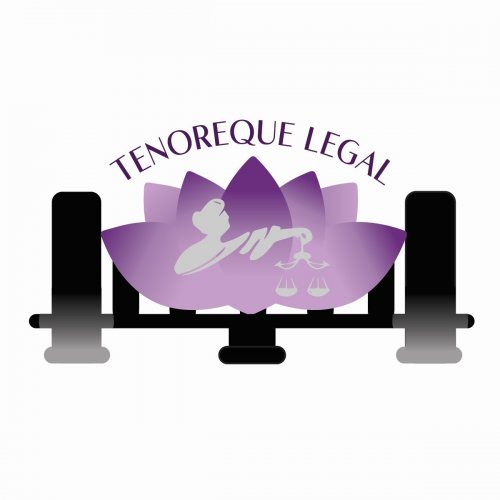Best Nonprofit & Charitable Organizations Lawyers in Port of Spain
Share your needs with us, get contacted by law firms.
Free. Takes 2 min.
List of the best lawyers in Port of Spain, Trinidad and Tobago
About Nonprofit & Charitable Organizations Law in Port of Spain, Trinidad and Tobago
Nonprofit and charitable organizations in Port of Spain, Trinidad and Tobago, play a crucial role in addressing various social, cultural, and economic issues within the community. These organizations operate under a framework that allows them to function without the primary goal of making profits, often focusing on charitable missions, educational purposes, religious activities, or community service. The legal landscape governing nonprofits and charities is designed to ensure that these organizations operate efficiently while maintaining transparency and accountability to their stakeholders and the public. Understanding these laws is essential for those involved in the establishment and management of nonprofit entities.
Why You May Need a Lawyer
There are several situations where an individual or organization may require legal assistance in the field of nonprofit and charitable organizations:
- Formation and Registration: Setting up a nonprofit involves navigating legal requirements, preparing the necessary documents, and ensuring compliance with regulations.
- Tax Exemptions: Understanding and applying for tax exemptions can be complex, necessitating expert legal advice to ensure proper adherence to the law.
- Governance Issues: Establishing bylaws, managing board responsibilities, and creating policies require skilled legal guidance to maintain organizational integrity.
- Compliance and Reporting: Regular compliance with statutory requirements and timely reporting to relevant authorities is crucial for the smooth operation of nonprofits.
- Litigation and Dispute Resolution: Legal challenges may arise from external disputes or internal conflicts, requiring professional legal representation.
Local Laws Overview
Key aspects of local laws relevant to nonprofit and charitable organizations in Port of Spain, Trinidad and Tobago include:
- Companies Act: Nonprofits register under the Companies Act as non-profit companies, which mandates specific structural and operational guidelines.
- Charitable Status: Organizations must meet specific criteria to attain charitable status, influencing their eligibility for benefits like tax exemptions.
- Taxation Laws: The Board of Inland Revenue governs tax-related provisions, offering relief under certain conditions for registered charities.
- Regulatory Compliance: Regular reporting and audits are required to ensure transparency and accountability, as overseen by the relevant government bodies.
- Employment Regulations: Nonprofits with employees must adhere to labor laws and guidelines governing employment practices.
Frequently Asked Questions
What is required to register a nonprofit organization in Trinidad and Tobago?
The process involves preparing a memorandum and articles of association, submitting them to the Companies Registry, and fulfilling any additional requirements under the Companies Act.
How does an organization obtain charitable status?
Charitable status can be obtained by applying to the Board of Inland Revenue and ensuring that the organization’s objectives align with charitable purposes defined under the law.
Are nonprofit organizations exempt from all taxes?
While nonprofits may qualify for certain tax exemptions, they are not automatically exempt from all taxes. It's important to understand the specific exemptions applicable.
What governance structure is required for a nonprofit?
Nonprofits typically require a board of directors to govern the organization, along with defined roles and responsibilities as outlined in the articles of association.
Can a nonprofit distribute profits to board members?
No, nonprofit organizations are prohibited from distributing profits to board members or stakeholders and must reinvest any surplus into furthering their mission.
What are the filing requirements for nonprofits?
Nonprofits must submit annual returns, financial statements, and periodic reports to the Companies Registry and other relevant authorities to maintain compliance.
Can a foreign entity establish a nonprofit in Trinidad and Tobago?
Yes, a foreign entity can establish a nonprofit, but it must comply with local registration requirements and regulations as stipulated by the Companies Act.
What are the consequences of non-compliance with nonprofit regulations?
Non-compliance can lead to penalties, loss of charitable status, or deregistration, impacting the ability of the organization to operate effectively.
How does employment law affect nonprofit organizations?
Nonprofits must adhere to national employment laws, ensuring fair labor practices, safe working conditions, and compliance with employment standards.
Is legal advice mandatory for setting up a nonprofit?
While not mandatory, obtaining legal advice is highly recommended to navigate the complexities of legal requirements and ensure proper establishment and operation.
Additional Resources
- The Companies Registry: Responsible for registering nonprofits and providing guidance on compliance matters.
- Board of Inland Revenue: Offers information on tax exemptions and charitable status processes.
- Nonprofit Organizations Bureau: Provides resources and support for nonprofit governance and best practices.
- Legal Affairs Ministry: Offers legal resources and policy guidance for nonprofit organizations.
- Local Law Firms: Specializing in nonprofit law, providing tailored legal advice and services.
Next Steps
If you need legal assistance with a nonprofit or charitable organization in Port of Spain, Trinidad and Tobago, consider the following steps:
- Identify Your Needs: Determine the specific legal issues or questions you have concerning your nonprofit organization.
- Consult with a Lawyer: Seek advice from a lawyer specializing in nonprofit law to gain clarity on legal requirements and protections.
- Gather Necessary Documentation: Prepare the relevant documents and information to facilitate effective legal consultation and advice.
- Engage with Regulatory Authorities: Contact relevant bodies such as the Companies Registry and Board of Inland Revenue for procedural guidance.
- Maintain Compliance: Implement systems to ensure ongoing compliance with local regulations and legal standards.
Lawzana helps you find the best lawyers and law firms in Port of Spain through a curated and pre-screened list of qualified legal professionals. Our platform offers rankings and detailed profiles of attorneys and law firms, allowing you to compare based on practice areas, including Nonprofit & Charitable Organizations, experience, and client feedback.
Each profile includes a description of the firm's areas of practice, client reviews, team members and partners, year of establishment, spoken languages, office locations, contact information, social media presence, and any published articles or resources. Most firms on our platform speak English and are experienced in both local and international legal matters.
Get a quote from top-rated law firms in Port of Spain, Trinidad and Tobago — quickly, securely, and without unnecessary hassle.
Disclaimer:
The information provided on this page is for general informational purposes only and does not constitute legal advice. While we strive to ensure the accuracy and relevance of the content, legal information may change over time, and interpretations of the law can vary. You should always consult with a qualified legal professional for advice specific to your situation.
We disclaim all liability for actions taken or not taken based on the content of this page. If you believe any information is incorrect or outdated, please contact us, and we will review and update it where appropriate.














